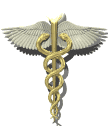
Tympanoplasty (Eardrum Repair) - Care
You will have a small pack in your ear which will be removed in approximately three to five days. Stitches behind the ear need to be removed between days five and ten. (An incision is created behind the ear to harvest a graft which is used to repair the eardrum, and if a postauricular approach is performed, the incision also provides surgical access to the ear canal.)
You must keep water out of your ear until your doctor gives you clearance. This is usually in about one month.
You should avoid flying and subjecting your ear to pressure changes for approximately six weeks.
You should not blow your nose and if you have to sneeze, sneeze with your mouth open.
Tympanoplasty - Complications
1. Facial nerve paralysis - A very rare complication.
2. Hearing Loss - A worsening of a conductive hearing loss may occur if scarring develops, there is enlargement or a failure to close the perforation.
3. Tinnitus (Ringing in the ears) - This usually happens only if there is a worsening of the hearing loss. Rarely, it is due to damage to the inner ear.
4. Eardrum perforation - Either a persistent or reperforation after an initial take of the graft. This may happen between 70% to 95% of patients.
5. Numbness of the side of the tongue: This may occur with the cutting of the chorda tympani nerve. However, patients with chronic ear disease may already have damage to their chorda tympani and are unlikely to notice tongue numbness or change in taste if the nerve is injured or cut during surgery. (Goyal a, Singh PP & Dash G - Oto HN Surg May 2009)
6. Allergic reactions to drugs, bleeding,
infection and even death.